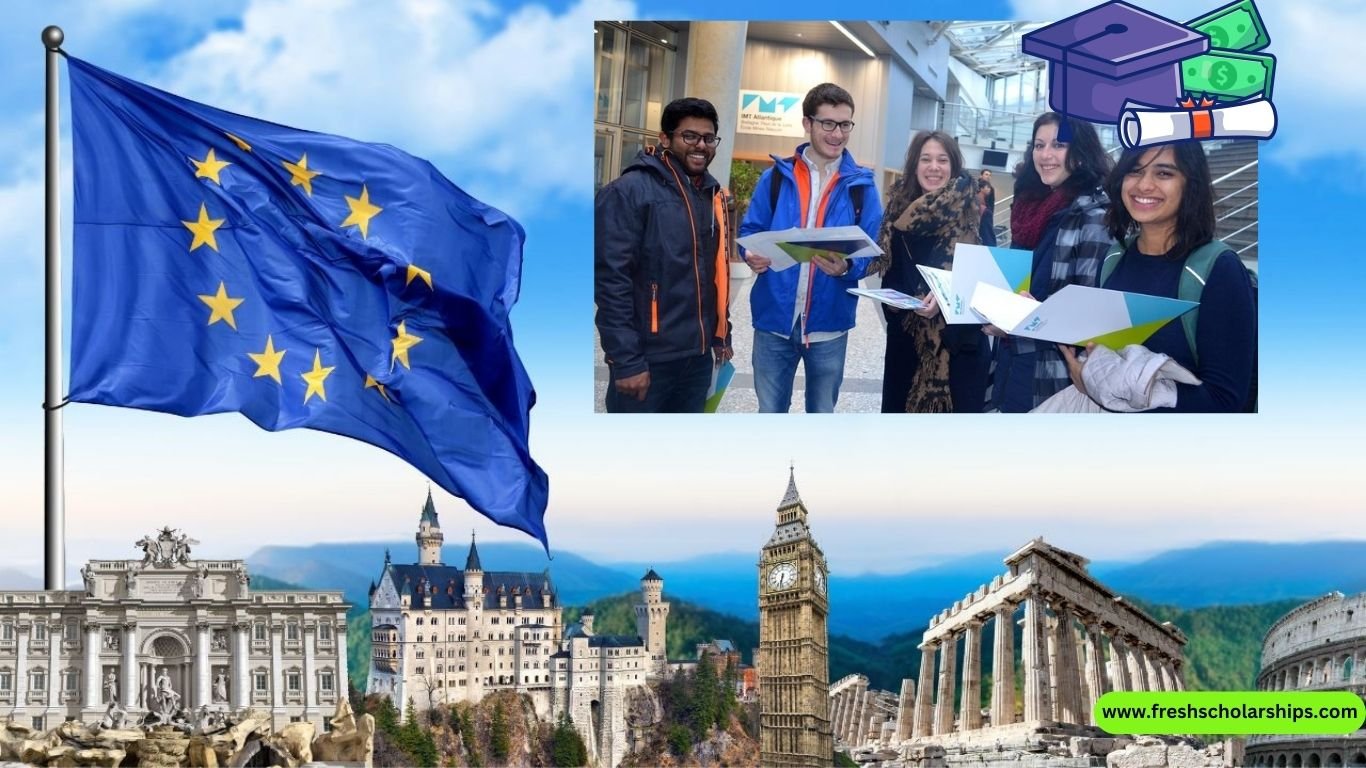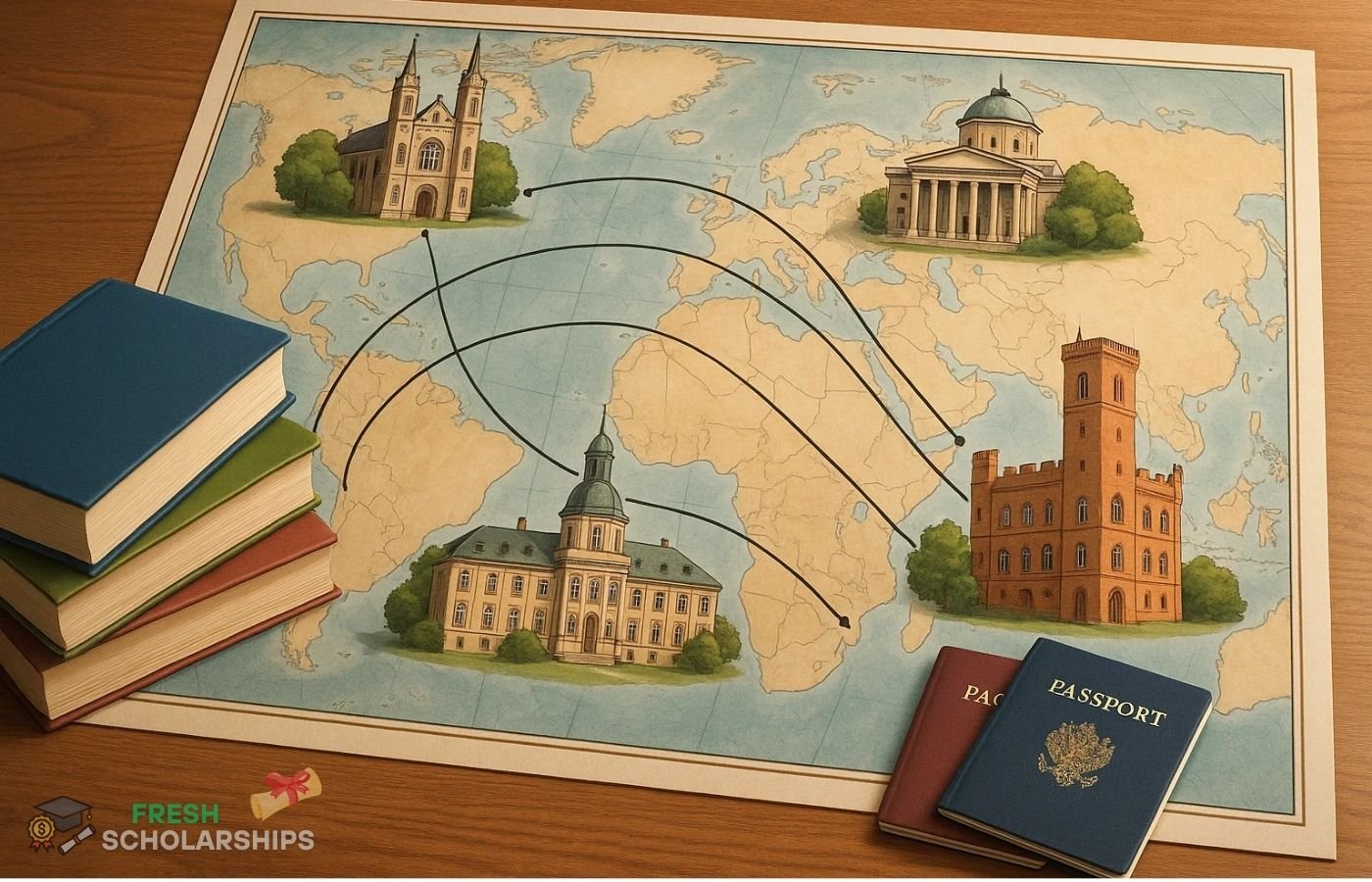 Studying in Europe is a dream for many students. The Erasmus Mundus program is one of the best ways to achieve that dream. Among its many joint master’s programs, EMJMD ACES (Applied Computational Electromagnetics) stands out for science and engineering students. It offers full scholarships, travel support, and a chance to study at top universities across Europe.
Studying in Europe is a dream for many students. The Erasmus Mundus program is one of the best ways to achieve that dream. Among its many joint master’s programs, EMJMD ACES (Applied Computational Electromagnetics) stands out for science and engineering students. It offers full scholarships, travel support, and a chance to study at top universities across Europe.
In this guide, we will explain everything about Erasmus Mundus Scholarships for EMJMD ACES—who can apply, GPA requirements, the 12-month rule, application steps, and tips to win.
What is EMJMD ACES?
The EMJMD ACES program is an Erasmus Mundus Joint Master Degree in Applied Computational Electromagnetics. It is designed for students interested in advanced engineering, mathematics, physics, and computing.
The program is run by a group of European universities. Students travel and study in more than one country during their two-year master’s degree. By the end of the program, students earn a joint degree that is recognized across Europe.
ACES prepares graduates for jobs in:
Research labs
High-tech industries
Universities
Government organizations
It is a mix of theory, research, and practical training, making it very attractive for students who want global exposure.
Who Can Apply for Erasmus Mundus ACES?
The Erasmus Mundus scholarship is open to students from all over the world. This includes applicants from Pakistan, Asia, Africa, Europe, the Middle East, and beyond.
You must have a relevant bachelor’s degree in engineering, physics, applied mathematics, or computer science. Strong academic records and motivation are key.
Who is eligible for the Erasmus Mundus scholarship?
To be eligible, you must:
Hold a bachelor’s degree (or be in the final year of study)
Have excellent grades in your past studies
Show English language proficiency (IELTS or TOEFL)
Provide letters of recommendation and a strong statement of purpose
There is no restriction on nationality. Both European and non-European students can apply.
The 12-Month Rule for Erasmus Mundus
The 12-month rule applies mainly to non-European students. If you have lived or studied in Europe for more than 12 months in the last 5 years, you cannot apply as a “partner country student” (non-EU). Instead, you will be considered a “program country student” (EU).
This matters because the scholarship gives preference and higher funding to students from outside Europe.
GPA and Academic Requirements
A high GPA increases your chance of selection. Most successful applicants have a GPA of at least 3.0 to 3.5 out of 4.0 or equivalent.
What GPA do you need for Erasmus Mundus?
Minimum: Many programs accept 2.8 to 3.0 out of 4.0
Competitive: A GPA above 3.5 out of 4.0 is highly recommended
If your GPA is lower, you can balance it with strong recommendation letters, research experience, or publications
Each country has its own grading system, so Erasmus programs often convert your marks. For example, in Pakistan a CGPA of 3.2 may be competitive if combined with other achievements.

How Competitive is Erasmus Mundus ACES?
The Erasmus Mundus scholarship is very competitive. Each program receives hundreds of applications for only 15–20 funded seats.
How hard is it to get an Erasmus Mundus scholarship?
It is challenging but not impossible. Selection committees look at:
Quality of your motivation letter
Recommendation letters
Research or work experience
International outlook and leadership potential
Students who prepare early and present a strong application often succeed.
Benefits of Erasmus Mundus Scholarships
The scholarship is one of the most generous in the world. It covers almost every expense:
Full tuition fee waiver
Monthly stipend (€1,000–€1,200) for living costs
Travel allowance (varies by home country distance)
Installation allowance for setting up abroad
Insurance coverage during studies
This means students can fully focus on their studies without worrying about money.
Application Process Step by Step
Applying for Erasmus Mundus ACES requires careful planning.
Documents Required
You will need:
Degree certificate and transcripts
English language test results (IELTS/TOEFL)
Curriculum Vitae (CV) in Europass format
Motivation letter (1–2 pages)
Two or more recommendation letters
Passport copy
Proof of work or research experience (if any)
Timeline and Deadlines
September–October: Call for applications opens
January–February: Application deadline
March–April: Evaluation and interviews (if needed)
May–June: Final selection results announced
September: Classes begin at the first host university
It is important to apply early and carefully follow the official instructions on the ACES website.
Tips to Improve Your Chances
Here are some ways to strengthen your application:
Write a powerful motivation letter – Show your passion for computational electromagnetics, your career goals, and why Europe is the right place for you.
Choose the right recommenders – Pick professors or supervisors who know your academic and professional strengths.
Highlight extra achievements – Mention publications, internships, projects, or leadership roles.
Show international exposure – Even small experiences like exchange programs or online global projects can help.
Apply widely – You can apply to up to three Erasmus Mundus programs in one year.
Life as an Erasmus Mundus ACES Scholar
Winning an Erasmus Mundus scholarship is not just about money. It is also about life experience.
As a scholar, you will:
Study in at least two or three European countries
Travel with classmates from all over the world
Experience new cultures, languages, and academic styles
Build a global professional network
Gain a degree respected by employers worldwide
This exposure helps you grow both academically and personally.
Final Thoughts
The Erasmus Mundus Scholarships for EMJMD ACES offer a life-changing chance for students who want to study advanced engineering in Europe. It is competitive, but with strong grades, a good GPA, and a focused application, you can succeed.
For Pakistani and international students, this is more than just a scholarship. It is a pathway to global knowledge, career growth, and personal development. If you prepare well, your journey from the classroom to Europe can become a reality.

Scholarship and education policy analyst sharing updates on global study grants, government programs, and policy changes across Asia, Africa, and the Middle East.